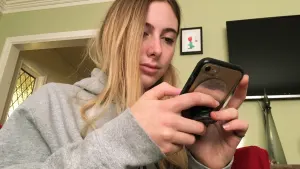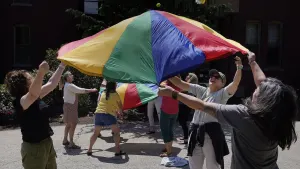More Stories
This morning we learn that Pfizer's COVID-19 vaccine does appear to work against a key mutation in new variants of coronavirus.
Researchers at Pfizer and The University of Texas used a mutation found in two variants to create a version of the virus. They tested it against blood from 20 people who had received two doses of the vaccine as part of the clinical trial. Researchers found no reduction in neutralization activity.
The COVID-19 variant first found in the United Kingdom has been confirmed in Connecticut. The variant was found in two people between the ages of 15 and 25. One of the individuals recently traveled to Ireland, while the other traveled to New York state. Earlier this week, the variant was detected in Saratoga Springs, New York. The CDC says at least 56 cases have been found so far in the United States.
The U.S. continues to set grim new COVID-19 records every day. A record 4,085 people died from COVID-19 in the nation on Thursday, according to Johns Hopkins University. It's the first time we've seen more than 4,000 deaths in a single day.
Britain has authorized the use of Moderna vaccine. The country's health department announced the vaccine meets the regulator's "strict standards of safety, and quality." It's now the third coronavirus vaccine approved for use in the U.K., behind Pfizer and AstraZeneca. So far, 1.5 million people in Britain have been vaccinated with those two other vaccines. The Moderna vaccine isn't expected to be available in the U.K. until the spring.
This morning, Dr. Sharon Nachman joined News 12's Elizabeth Hashagen to discuss the latest on the coronavirus vaccines and pandemic.
Dr. Nachman is the head of the Division of Pediatric Infectious Diseases at Stony Brook Children's Hospital.
We have new data on the COVID-19 variants and how they react to vaccines. This preliminary new study is giving us early evidence that a COVID-19 vaccine might be effective against two new coronavirus variants first identified in South Africa and the U.K., despite a concerning mutation. The study still needs to be peer reviewed.
In research posted online, they said they found "no reduction in neutralization activity" against the mutated virus.
The two viruses share a mutation known as "N501Y." Scientists are concerned that could allow the virus to evade the immune protection generated by a vaccine. Researchers made a version of the virus in the lab that carries the mutation. They tested it against blood taken from 20 people who had received two doses of the Pfizer vaccine as part of a clinical trial. Dr. Nachman explains how the vaccine works:
Thursday marked the first time that COVID-19 deaths in the U.S. topped 4,000 people in a single day. At least 274,703 COVID-19 cases, and a record 4,085 deaths tied to the virus were reported in the United States on Thursday, according to Johns Hopkins University's tally of cases.
Today, New Jersey opens six mega sites to administer the vaccine. This comes as cases climb in the tri-state area, with New Jersey having the highest infection rate at 14.96%.
Dr. Nachman discusses how the virus is spreading and how to best distribute the vaccine:
Which manufacturers are testing the vaccines on children, and when can our children get the vaccine? Below is what Dr. Nachman has to say:
And we want to know - Would you give your kids a COVID-19 vaccine? Head to Twitter to take our poll.
A new study by the Centers for Disease Control and Prevention shows nearly 60% of COVID-19 cases are transmitted by people without symptoms. That includes people who are pre-symptomatic or never show any signs of the virus. Researchers say most of the spread comes from people who will go on to become ill, but have not yet developed symptoms. The CDC says the study shows why it's important for everyone to behave as if they could transmit the virus, whether they are sick or not. Learn more about how the virus spreads here.
Dr. Nachman discusses what is frightening to her about this study:
Have we seen the peak of post-holiday travel COVID-19 cases, or is it still too early? Dr. Nachman answers in the video below:
More from News 12
1:28

5 simple steps for long-term benefits to your health and heart
1:32

8 tips for working safely during hot weather
3:31

Guide: Ways to set your child up for financial success
3:18

Guide: The importance of good sleep and how to get it

Guide: Mental health resources available in the tri-state
9:36
